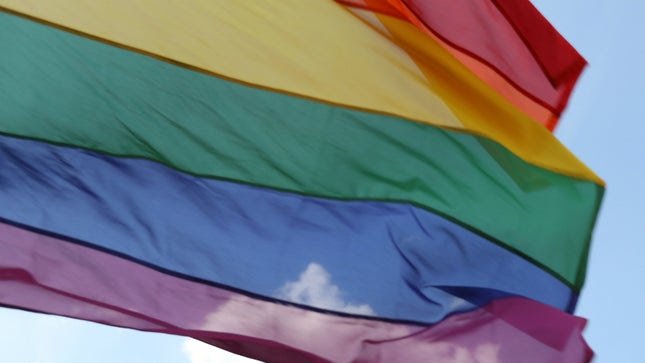
The Kentucky Supreme Court will hear a case involving a Christian t-shirt maker who refused to make shirts for a state LGBT organization, claiming it violated his religious principles.
Back in 2012, Blaine Adamson, owner of Hands On Originals, refused to make Pride t-shirts for Lexington’s Gay and Lesbian Services Organization. The group filed discrimination charges with the Lexington-Fayette Urban County Human Rights Commission, which claimed Blaine had violated the city’s fairness ordinance—which prohibits discrimination based on sexual orientation in employment, housing and public accommodations.
Adamson maintains he was only expressing his religious beliefs.
“I will work with any person, no matter who they are, and no matter what their belief systems are,” he said in a press conference Friday. “But when I’m presented with a message that conflicts with my faith, that’s just something I cannot print, that’s the line for me. I don’t walk into my business every morning and leave my faith at the door.”
Adamson claims to have made t-shirts for a lesbian performer at the Pride celebration. The shirts requested by the LGBT organization were to have “Lexington Pride Festival” printed on them with the number 5, signifying the event’s fifth anniversary.
A statement on the Hands On website indicates the company “both employs and conducts business with people of all genders, races, religions, sexual orientations, and national origins.”
“However, due to the promotional nature of our products, it is the prerogative of Hands On Originals to refuse any order that would endorse positions that conflict with the convictions of the ownership,” it continues
Adamson is being represented by the Alliance Defending Freedom (ADF), a conservative legal group that previously represented Hobby Lobby in a suit claiming mandatory coverage of birth control in employee-funded health plans was unconstitutional.
“The evidence is clear that Hands On Originals serves everyone—and just doesn’t print certain messages,” ADF counsel Joe Campbell told the justices on Friday. “The First Amendment in this case cuts in Hands On Originals’ favor—[it] ensures that the government can’t use a law to force someone to print or convey a message that they find objectionable.”
Lower courts previously found in Adamson’s favor twice, before the case landed before the state supreme court.
Justice Michelle Keller asked if Adamson’s argument couldn’t be used to defend workplace and housing discrimination against Catholics in the late 19th century. “That would still be okay under this analysis, wouldn’t it? I mean that kind of overt discrimination between faiths?” she asked. “As long as it is tied to the production of printed material.”
“If you buy the argument of Hands On Originals, they can do anything they want in the name of religion,” said Ed Dove an attorney for the Human Rights Commission.
Legal experts predict the ruling could impact anti-discrimination ordinances nationwide.
“That’s why we have a public accommodations ordinance: to stop businesses from allowing certain populations to be discriminated against and not enjoy the goods and services that are being offered by that business,” said commission chair Ray Sexton. “This is where we were in the ’60s—’Well, we don’t believe you should do business with African Americans. Sexual orientation and gender identity are the civil rights issue of our time.”
While at least a dozen cities in Kentucky include sexual orientation and gender identity in their anti-discrimination ordinances, the state does not.
In June 2018, a case involving a Colorado bakery owner who refused to make a wedding cake for a gay couple went all the way to the U.S. Supreme Court, which ruled in owner Jack Phillips’ favor.
“The Colorado Civil Rights Commission’s consideration of this case was inconsistent with the State’s obligation of religious neutrality,” Justice Anthony Kennedy wrote in the majority opinion. “The reason and motive for the baker’s refusal were based on his sincere religious beliefs and convictions,”
While Kennedy stipulated that “the outcome of cases like this in other circumstances must await further elaboration in the courts,” the high court’s decision gave a precedent for business owners to invoke their religious beliefs with the expectation of more legal protection.
Masterpiece Cakeshop v. Colorado Civil Rights Commission “invites discrimination and further efforts to justify withholding service from LGBTQ people,” said Lambda Legal at the time.
*see full story by NewsWeek